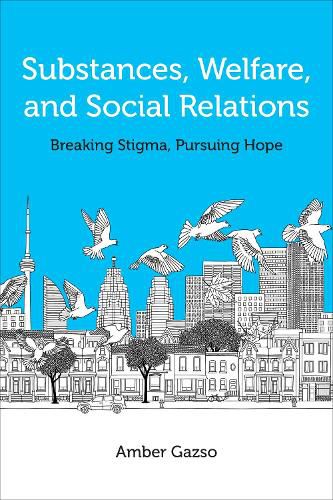Readings Newsletter
Become a Readings Member to make your shopping experience even easier.
Sign in or sign up for free!
You’re not far away from qualifying for FREE standard shipping within Australia
You’ve qualified for FREE standard shipping within Australia
The cart is loading…






Substances, Welfare, and Social Relations uses intimate, complex portraits to tell the stories of people who have lived some part of their life course while using or recovering from using substances (such as alcohol or illicit or prescription drugs) and also being part of a family and experiencing poverties.
Through these multifaceted stories, layered with a critical analysis of welfare policy, the book probes the deeply entrenched stigma of living with addiction and in low income. Amber Gazso's work revolves around the three-principles idea that (1) addiction is part of everyday life; (2) if we believe that people are not their addictions, then stigmatizing addiction has no place in society; and (3) destigmatizing addiction and providing better, more imaginative programs and services invites and supports actionable hope. Reflecting on qualitative data, both narrative interviews and policy discourse, Substances, Welfare, and Social Relations illuminates how stigmas can be overturned through a collective praxis of hope.
$9.00 standard shipping within Australia
FREE standard shipping within Australia for orders over $100.00
Express & International shipping calculated at checkout
Substances, Welfare, and Social Relations uses intimate, complex portraits to tell the stories of people who have lived some part of their life course while using or recovering from using substances (such as alcohol or illicit or prescription drugs) and also being part of a family and experiencing poverties.
Through these multifaceted stories, layered with a critical analysis of welfare policy, the book probes the deeply entrenched stigma of living with addiction and in low income. Amber Gazso's work revolves around the three-principles idea that (1) addiction is part of everyday life; (2) if we believe that people are not their addictions, then stigmatizing addiction has no place in society; and (3) destigmatizing addiction and providing better, more imaginative programs and services invites and supports actionable hope. Reflecting on qualitative data, both narrative interviews and policy discourse, Substances, Welfare, and Social Relations illuminates how stigmas can be overturned through a collective praxis of hope.